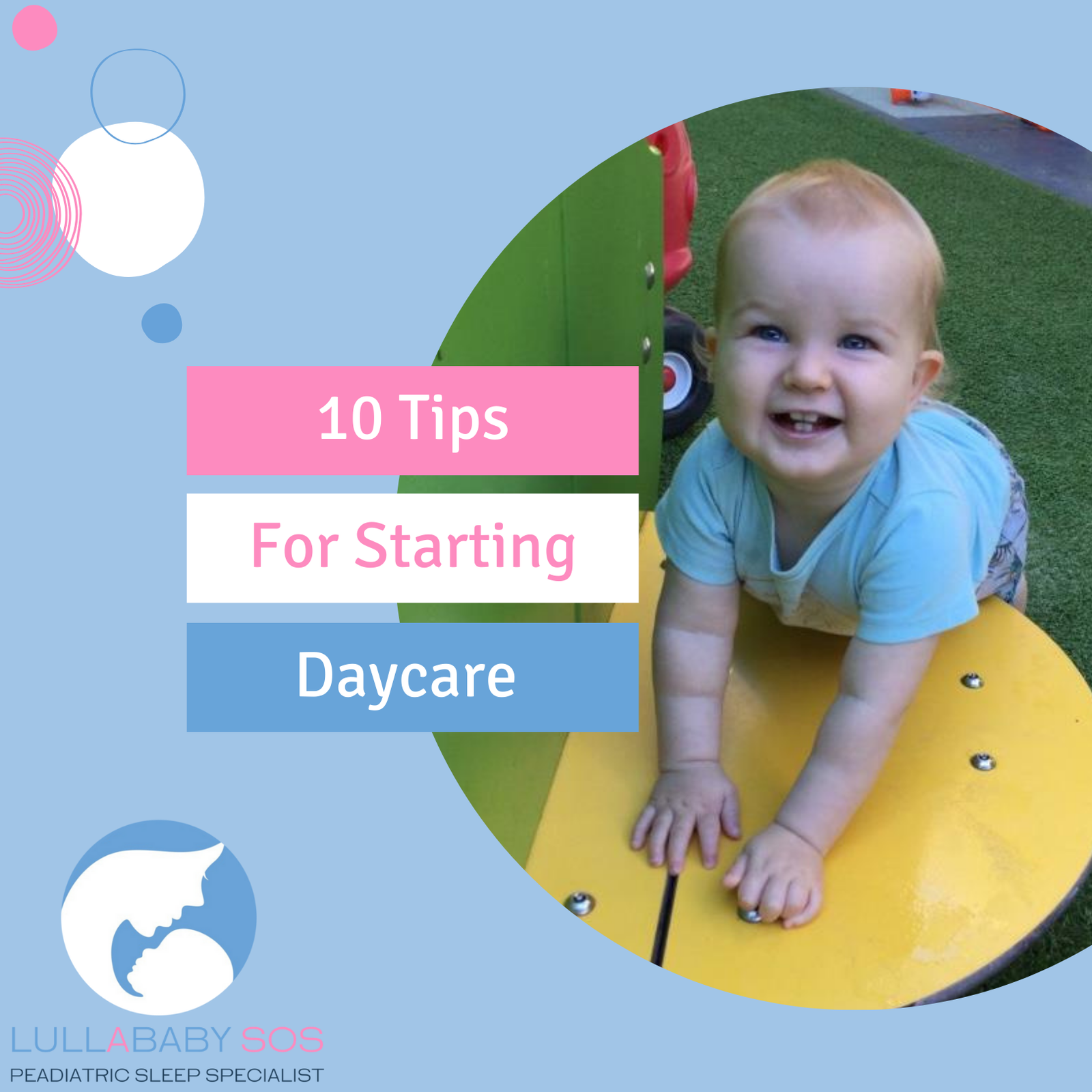10 Tips for Successful Start to Childcare
Starting childcare is an inevitable choice for most families, and it can be daunting for both parents and their little one – preparation is key.
Here are my top 10 tips for starting childcare:
Number 1 – RESEARCH
Finding childcare that feels right for you, your little one, and their personality can be a challenging prospect, especially when you are trying to find one that has availability for the days you need, in the required area and ticks all your boxes.
– Try visiting a couple of centres in your area, either close to home, or close to work, or both.
– Have conversations with the carers, visit the rooms, and prepare questions to ask questions any concerns that you have
By visiting the childcare centres, you will get a feel for them, the staff, how they are run, and whether you think they will be a good fit for you and your family.
Number 2 – Arrange play dates.
Once you have selected a childcare centre, arrange to have some “play dates” before your child starts. Most centres will be happy to facilitate visits for families before starting childcare. You can request more if needed, and most childcare centres are pretty flexible.
Playdates before official start dates are when you stay with your child in the room to be immersed in the environment they will be joining. I suggest arranging a few playdates a couple of weeks before the planned attendance begins and between 930 and 11 am or after 2 pm. These times are generally when the children are doing activities, making it less stressful for your child and the staff for you to be there at that time.
Between 9.30 am and 11 am is when the children are usually doing planned activities. Coming at this time will allow you to see what your child will be involved in while attending childcare. The later afternoon time is usually freeplay. This can let your child explore their new environment freely and help them become comfortable with the other children staff and centre before starting childcare.
Number 3 – Have a transition comforter.
Having a favourite item that represents home can help your baby as they transition into childcare. I recommend having a “Lovie” (with a back up spare) and introducing the lovey, long before childcare. The intention is that this will be a toy from home which goes to childcare with them to offer comfort and familiarity in their new environment to help them feel more comfortable.
Number 4 – Teach self-settling before starting childcare.
I know that this seems obvious, but many children start childcare that cannot self-settle yet. They may only fall asleep on the breast, in arms or a carrier and have not been taught how to self settle before attending childcare. It’s not fair on your child, the childcare staff or you. It can be stressful knowing that you’re dropping your child at childcare when they don’t know how to settle any other way but at the breast. Your baby then has to learn a new way of settling in a strange environment, which can cause more anxiety and make the transition into daycare take longer. It is also more stressful for the carers who have more than one baby to care for and get to sleep. If you can start teaching self-settling in the months leading up to beginning childcare, it will help with their transition.
Number 5 – Be prepared for illness.
If possible, try to avoid starting your child in late autumn or winter, where colds and flu are more frequent.
Younger children, especially babies and toddlers who are constantly putting their hands in their mouth, sharing items and crawling around floors, are so much more susceptible to illness, particularly at this time of year.
If attendance begins around this time, you might like to consider giving your child a probiotic and multivitamin to help boost their immune system.
Number 6 – Label everything.
Anything that goes to childcare that is not labelled do not expect it to return home. I don’t mean that negatively, but I know from working in childcare that with so many children and so many loose containers, bottles, and clothing items, it is challenging to find the owner of that item if it does not have a label.
Number 7 – Have a childcare wardrobe.
If there is an item of clothing that you do not want to come home dirty, with paint stains or minor rips in it, do not send it to childcare.
Childcare is messy, and they are there to have fun, explore, and not worry about the clothing they are wearing. Again, the childcare staff do not have the time to make sure that your little ones pretty dress doesn’t get paint on it, although they will do their best with paint smocks to protect clothing. It is undoubtedly best to make sure that you have an at-home wardrobe and the childcare wardrobe (hand me downs are perfect for childcare!).
Number 8 – Drop and run.
When you drop your child off at childcare, try to drop and run, don’t linger. I know this sounds mean, but if your little one is anxious as you’re dropping them off, your lingering may cause that anxiousness to build and grow and make it harder for them to transition during the drop off time. Talk to the childcare centre staff and make sure that your hand your little one over to a preferred career when you arrive to ensure they feel as comfortable as they can. Usually, the carers in your child’s room will pay special attention and care for newer children and all children at the drop off times, so it is good to get to know them so they, in turn, get to know you.
Number 9 – Be prepared at home.
After a long day of childcare, the last thing that you need to be doing is rushing home after pick up, rushing through dinner and then rushing through your bath and bedtime routine. Try and be organised with a couple of quick, easy, reheatable dinners so that when you come home from childcare, you can take about 15-20 minutes to reconnect with your little one before the evening rush.
Options could be sitting on the sofa, playing on the floor, or taking a blanket out onto the lawn. Childcare and the long day can be stressful for both you and your little one. Take this short time out before rushing into your evening routine to reconnect and relax. It will help avoid overtiredness and over stimulation at the end of the day and fill their emotional cup with mummy and daddy love.
And finally, number 10 trust.
Trust that there is a transition, and over the first couple of weeks, your babies routine is likely to be disrupted, they are likely to be overtired, the childcare staff are not always going to get it right.
Trust that they, as childcare staff, are doing this job because they love it and because they love working with children. They are doing their utmost, and they are doing their very best to make sure that your child and all the other children in their care are getting the best quality care they can give. And while your little one is transitioning, they are doing their best to support them through that.



